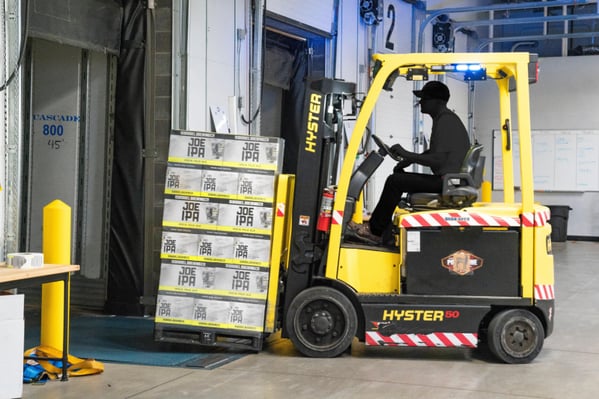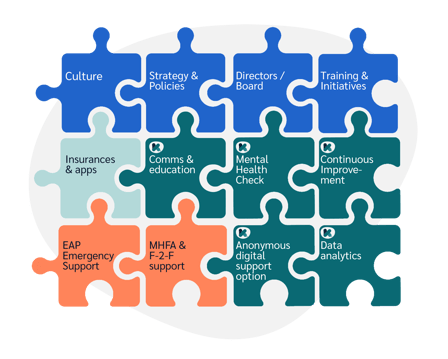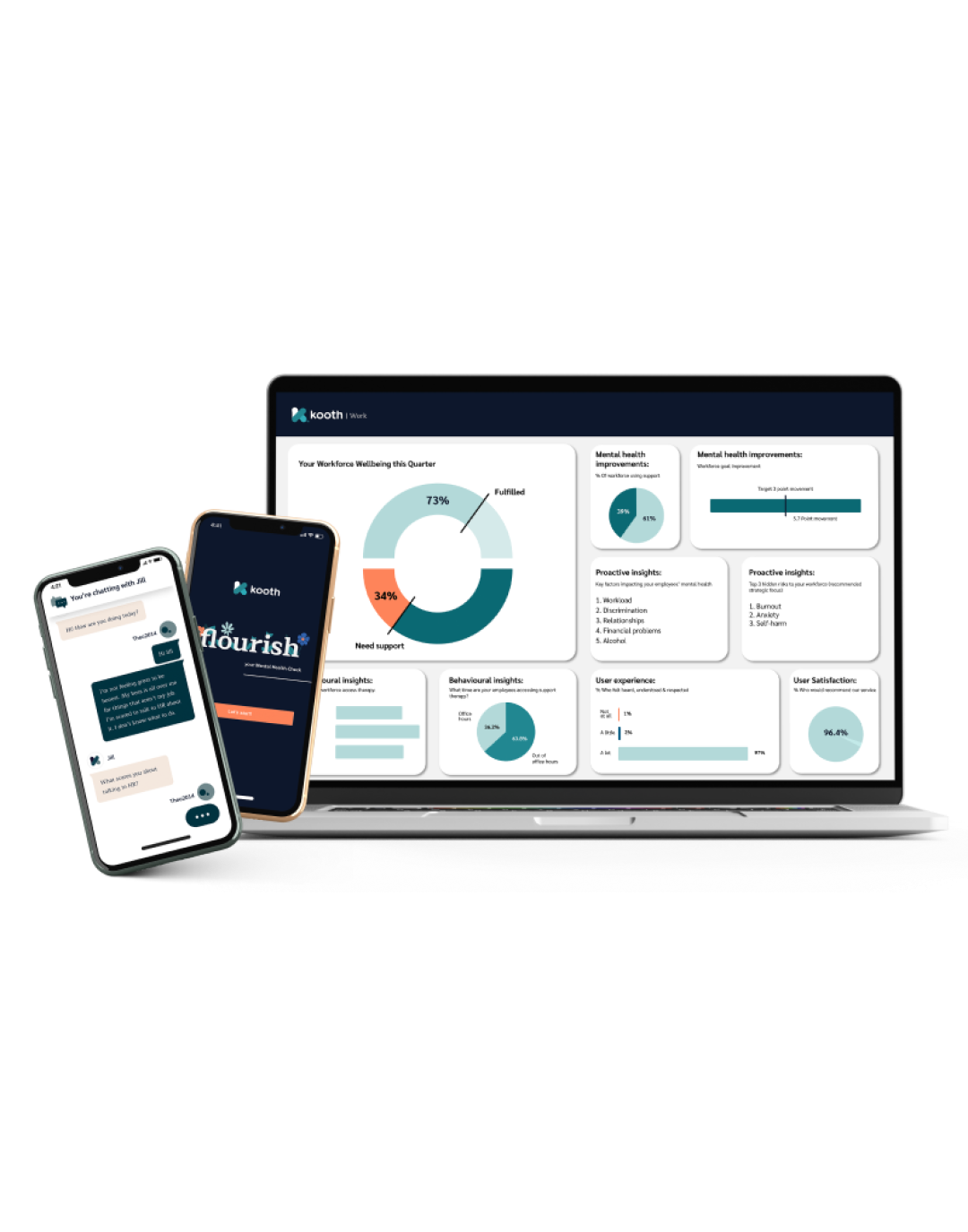If you look at your workforce as being on a spectrum of mental health, people will appear at different points along that line.
At one end, you’ll have people who are doing just fine. They feel as though they’re on an even keel. If they have any worries or anxieties, they may get help by talking to a friend, using a mindfulness app, or journaling, and that will be enough to see them through.
At the other end of the spectrum, you might have people who need urgent help for their mental health. They may go to A&E, ask for a referral from their GP, or get immediate support from your Employee Assistance Programme (EAP).
The Lost Majority are unseen and unheard
Sometimes referred to as the “Missing Middle”, the Lost Majority are the people in your organisation who are somewhere in the centre of the spectrum – neither 100% well, nor feeling like they need an emergency intervention.
They’re the people who might be finding it difficult to juggle work and other outside pressures. Maybe they’ve suffered a bereavement or have financial problems. Often, they have a form of anxiety or depression that they don’t feel is serious enough to require medication, but which inhibits their ability to perform their role.

How many people are affected?
These statistics about mental health in the workplace give us an idea of how many people may fall into the Lost Majority category.
- 1 in 6 workers will experience depression, anxiety, or problems relating to stress in any given week in England.
- In 2020/21, work-related stress, depression, or anxiety accounted for 50% of all work-related ill health.
- Presenteeism accounts for double the productivity losses of absenteeism.
Hard to reach, easy to overlook
“A key characteristic of ‘Lost Majority’ people is that their problems frequently remain out of sight of managers,” says James Murray, Director of Kooth Work, which provides mental health solutions for businesses.

Undetected employee mental health affects workplace health safety
“These are people who mask their problems, keep their head down, and just keep going. They don’t think their worries are that serious and, in any case, don’t feel they have time to stop and deal with them.”
Left unchecked, these problems can escalate and culminate into more serious problems such as burnout, absenteeism, workplace accidents, or the need to access emergency support. Or they may simply persist, and your workforce will carry on without resolving its presenteeism issues.

Half your employees won’t ask for help
“Fewer than 50% of employees are prepared to discuss their mental health, so ‘below the waterline’ distress like anxiety, depression, or suicidal thoughts go under the radar for many leaders,” says Murray.
This is even more concerning given that a recent Kooth Work study discovered that 28% of all adults using its service reported experiencing suicidal thoughts.
Prevalence among key workers and frontline staff
“We know that this is a particular issue within key worker sectors,” adds Murray. “There is an inherent urgency to maintain operations and keep going, even through the toughest of times; it is unsurprising that people mask these issues.”
How do you get your people back on track?
If one in six workers are experiencing depression, anxiety, or stress, but the majority won’t ask for help, how do you help them get back on track? This question has serious implications both for employees and for organisations.
“All directors say that people are their greatest asset,” says Murray, “but if you’re not looking after their mental health, you’re looking at a massive waste of potential.”
Be proactive
“If companies don’t proactively support the Lost Majority, they will always just be waiting to see the outcome of poor mental health, which will manifest itself in absenteeism, long-term sickness, and people leaving. But, by that stage, it’s too late. They’ll only be measuring the end result of doing nothing.”
Three ways to reach the Lost Majority
If you want to reach the silent majority of employees who may be suffering from mental health concerns, you must be proactive and find a solution that goes beyond mindfulness apps at one end and medical intervention at the other. You need to:
- Understand the hidden issues. You can’t make improvements if you don’t understand the baseline you’re starting from. Kooth Work carries out light-touch ‘Flourish’ surveys with employees that help people to assess their own mental health needs and find support. Flourish surveys also provide managers with anonymised reports that offer an overview of employees’ mental health concerns.
- Create a productive ecosystem of support. Offer employees a quick, easy, stigma-free way to get support for their mental health concerns. Qwell, provided by Kooth Work, gives employees anonymous digital support 24/7. They can choose self-therapy, talking to peers, or online chat with a counsellor.
- Adapt and improve. Benchmark where you are at the beginning, discover what support people need and what their issues are, and put strategies in place to offer support for changing needs. Kooth Work offers rich, anonymised data that pinpoints the issues in your organisation and coaching to help leaders provide the support that’s needed.

Having an ecosystem of support can help reach the Lost Majority
Everyone deserves good mental wellbeing
“Organisations need to shift towards adopting a proactive approach to mental health,” says Murray.
“We spend a third of our lives at work, and we all deserve to be happy and to flourish there. Kooth Work helps employees to deal with adverse experiences, build resilience, and learn the skills they need to cope with what’s coming next.”
Discover Kooth Work
Find out how Kooth Work could help improve the mental health of the Lost Majority in your workforce.






